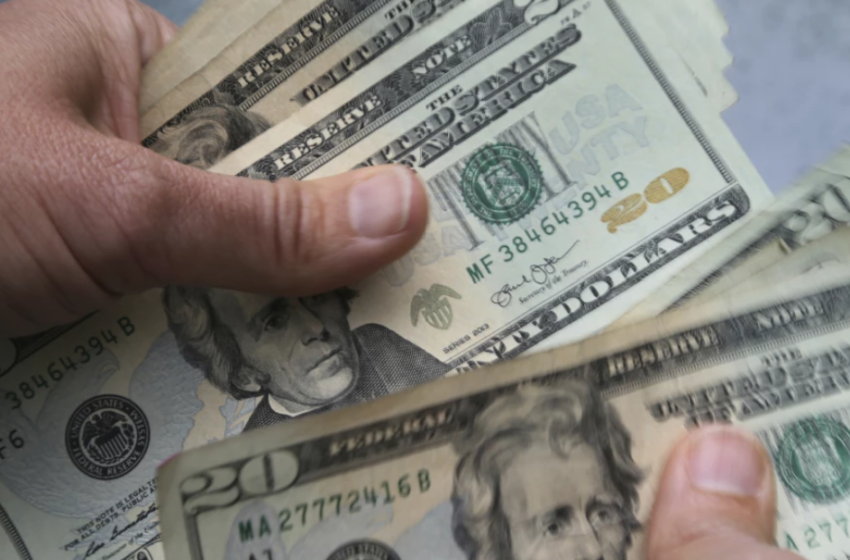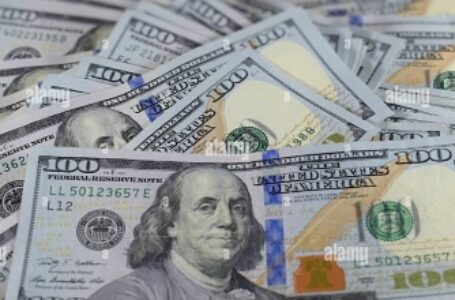Despite Manchin’s spin, the Inflation Reduction Act will devastate the economy

OBIDEN’S DEMOCRATS ARE DESTROYING AMERICA
Sen. Joe Manchin (D-WV), Sen. Chuck Schumer (D-NY), and President Joe Biden must think voters are fools.
That’s the only possible explanation for why they thought the “ Inflation Reduction Act ” was an appropriate title for a bill that spends hundreds of billions of dollars, raises more in taxes, and hikes the cost of doing business at a time when people are facing record inflation and a recession. Democratic leaders think voters won’t notice their disastrous policies and will forgive them at the ballot box in November. They couldn’t be more wrong.
Calling this warmed-over version of “Build Back Better” the “Inflation Reduction Act” is deceptive. Biden and co. are telling people that more spending and more taxes on manufacturers will somehow equal lower prices. This is wrong on multiple fronts.
First, the spending. The climate provisions, which are pulled from the failed Green New Deal, would spend a staggering $369 billion on so-called green provisions, the largest expense in the bill. Another provision would spend $64 billion on extending COVID-19-era Obamacare subsidies, temporarily shielding Obamacare enrollees from the real cost of rising premiums.
Pumping new spending into the economy is what got us record inflation in the first place. One of the bill’s most egregious tax credits is a good case study: a new $7,500 credit for the purchase of an electric vehicle with a price tag of up to $80,000 for taxpayers making up to $300,000 per year. This will squeeze the already strained supply chain and raise car prices further, making inflation worse. The winners? EV owners, who are overwhelmingly wealthy , and EV manufacturers. The losers? Everyone else in America who is paying higher prices and higher taxes to cover the bill.
The other side of the bill is increased taxes. In theory, taxes could reduce the deficit and thus reduce inflation. But in practice, the taxes they picked for this bill fail for three reasons.
First, the largest tax is a book minimum tax. That’s a spurious form of corporate tax calculated by an entirely different set of rules from the normal corporate income tax. It is designed to raise taxes on companies by wiping out the effect of depreciation, research and development, and other tax credits for companies — not “closing loopholes” as its proponents claim. This will mostly be passed on to consumers in the form of higher prices, aka inflation, as well as lower wages and stock returns.
Second, the bill’s spending is front-loaded into the next two or three years, while the taxes to pay for it are stretched out over a decade. So that means that the deficit will actually go up at first, spiking inflation for the foreseeable future. A Penn-Wharton model found that even if the deficit is reduced and the bill’s spending programs aren’t renewed, a big if, then inflation will still go up until 2024.
Third, the bulk of the burden from increased taxes will fall on workers making less than $400,000. One provision adds a whopping $80 billion to the IRS for increased enforcement — that’s six times the agency’s yearly budget. That money will add thousands more tax collectors to the agency to continue squeezing and auditing working- and middle-class people, particularly sole proprietorships — the smallest of small businesses.
Some provisions will pass on the costs indirectly, such as the book minimum tax or a new tax on natural gas, which will raise prices and inflation for consumers. The drug pricing component will allow Medicare to slash the prices it pays for prescription drugs, potentially preventing seniors from accessing new prescription drugs and stymieing future pharmaceutical research. The bipartisan Joint Committee on Taxation calculated that, altogether, the bill will raise taxes on every income bracket and that people making less than $400,000 a year will bear most of the total tax increase.
Most people understand basic economics, and they know increasing spending during inflation and increasing taxes during a recession are a bad idea. Manchin should get it. In 2010, he remarked , “I don’t think during a time of recession you mess with any of the taxes or increase any taxes.”
Manchin would do well to remember what happened after those remarks in 2010. After the Democratic-led House and Senate passed their similarly mistitled and similarly unpopular “Affordable Care Act,” they suffered what then-President Barack Obama rightly called a “shellacking.” Republicans picked up 63 House seats and flipped the chamber, while they flipped six seats in the Senate.
Note to Sens. Kyrsten Sinema (D-AZ) and Mark Kelly (D-AZ): In 2010, half of Arizona’s Democratic congressional delegation lost their seats, and the GOP held the state’s Senate seat. Arizonans, like most Americans, don’t like politicians who raise their taxes and ruin their economy.
If Democrats continue lying to the public and expecting to be thanked for it, they will have a rude awakening in November. They may not know what the price of gas is in their districts, but their constituents do. And they’ll remember it when they drive to the ballot box.















